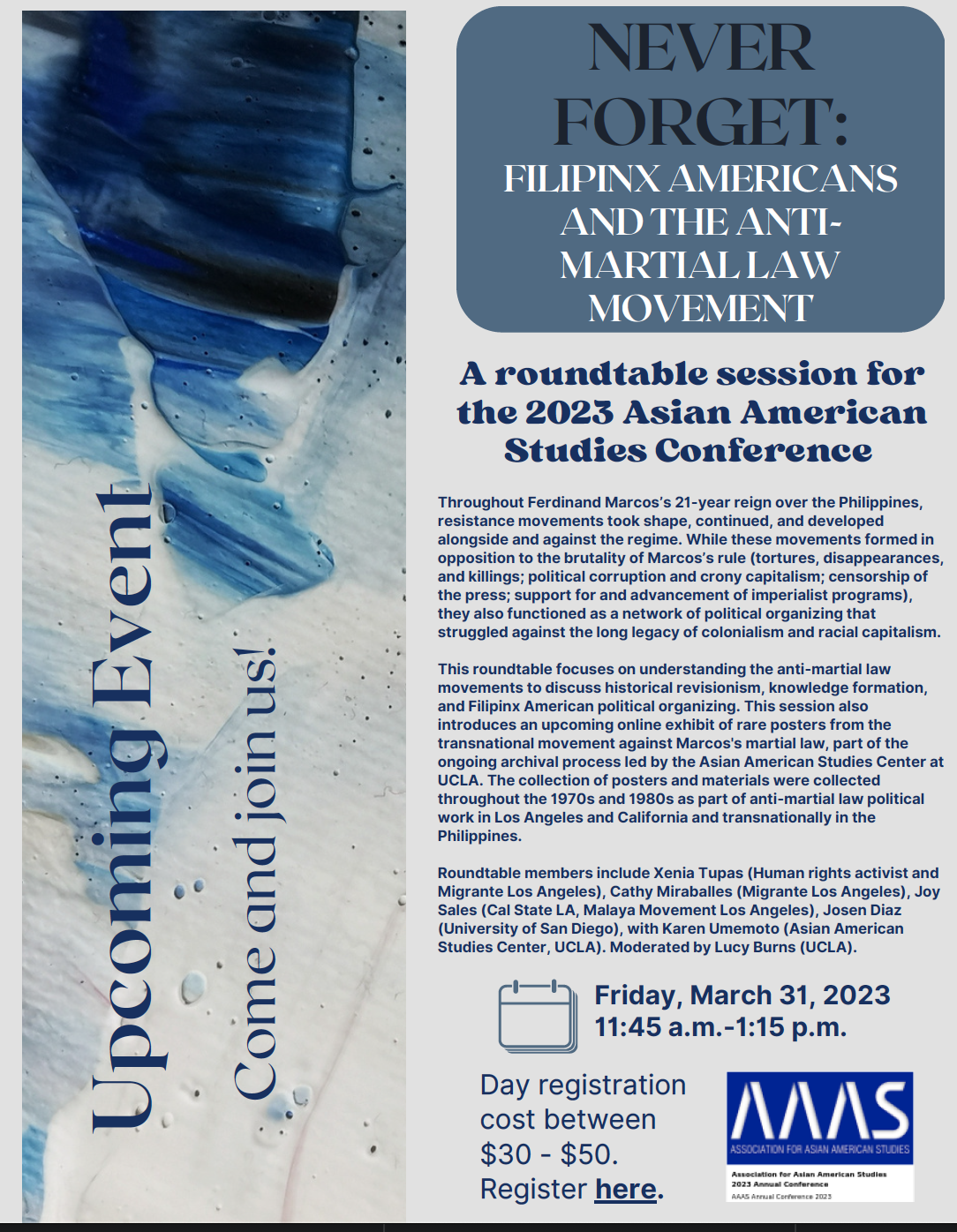
Throughout Ferdinand Marcos’s 21-year reign over the Philippines, resistance movements took shape, continued, and developed alongside and against the regime. While these movements formed in opposition to the brutality of Marcos’s rule (tortures, disappearances, and killings; political corruption and crony capitalism; censorship of the press; support for and advancement of imperialist programs), they also functioned as a network of political organizing that struggled against the long legacy of colonialism and racial capitalism.
This roundtable focuses on understanding the anti-martial law movements to discuss historical revisionism, knowledge formation, and Filipinx American political organizing. This session also introduces an upcoming online exhibit of rare posters from the transnational movement against Marcos’s martial law, part of the ongoing archival process led by the Asian American Studies Center at UCLA. The collection of posters and materials were collected throughout the 1970s and 1980s as part of anti-martial law political work in Los Angeles and California and transnationally in the Philippines.
Roundtable members include Xenia Tupas (Human rights activist and Migrante Los Angeles), Cathy Miraballes (Migrante Los Angeles), Joy Sales (Cal State LA, Malaya Movement Los Angeles), Josen Diaz (University of San Diego), with Karen Umemoto (Asian American Studies Center, UCLA). Moderated by Lucy Burns (UCLA).


